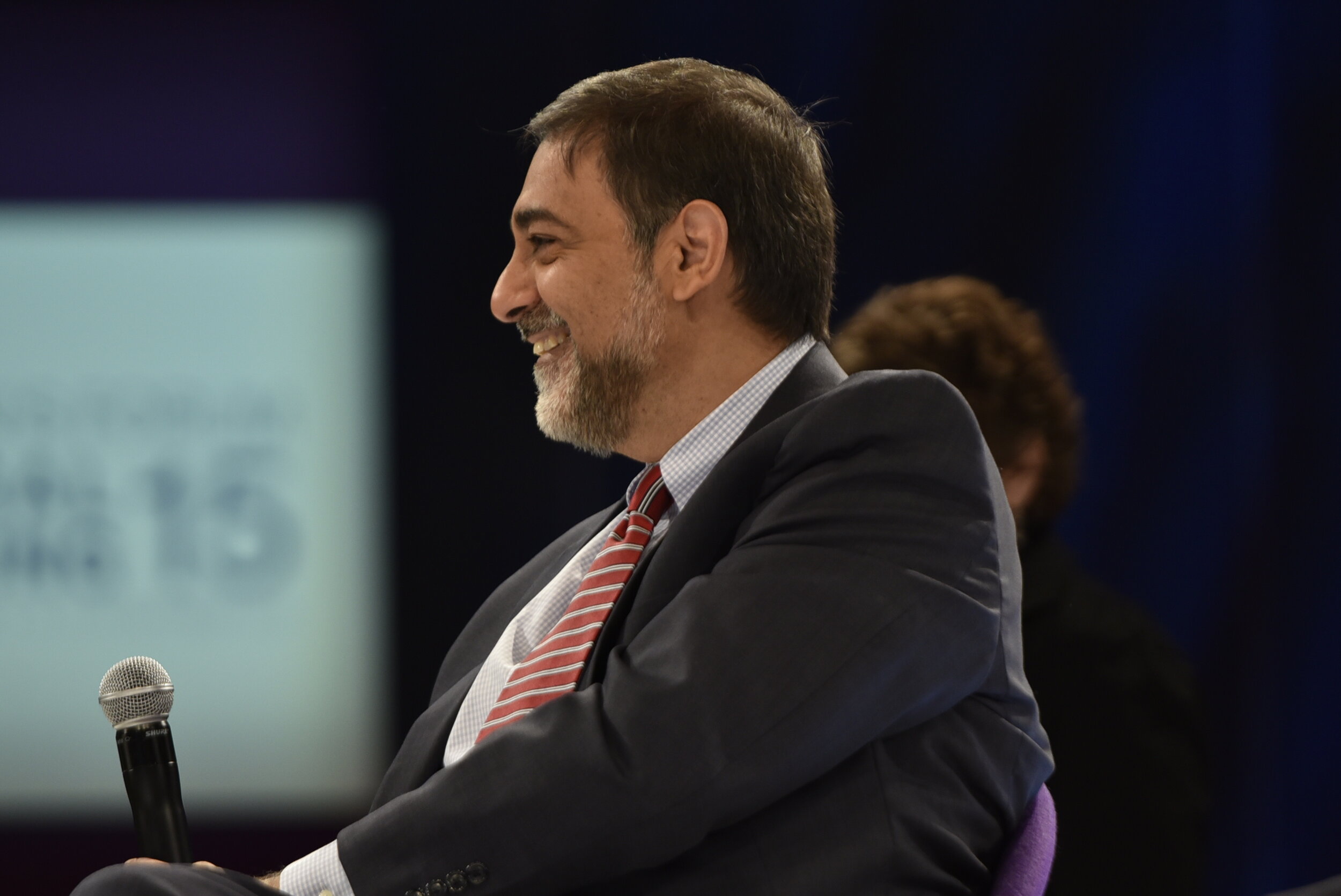
about vivek
AUTHOR, academic, SPEAKER, ENTREPRENEUR
Vivek Wadhwa is an academic, entrepreneur, and author of five best-selling books: From Incremental to Exponential; Your Happiness Was Hacked; The Driver in the Driverless Car; Innovating Women; and The Immigrant Exodus.
He has been a globally syndicated columnist for The Washington Post and has held appointments as Distinguished Fellow at Harvard Law School’s Labor and Worklife Program, Carnegie Mellon University, and Emory University; adjunct professor at Carnegie Mellon and Duke University; fellow at Stanford Law School and UC Berkeley; and head of faculty at Singularity University.
Vivek is based in Silicon Valley and researches, speaks, and writes about advancing technologies that are transforming our world. These advances – in fields such as robotics, artificial intelligence, computing, synthetic biology, 3D printing, medicine, and nanomaterials – are making it possible for small teams to do what was once possible only for governments and large corporations to do: solve the grand challenges in education, water, food, shelter, health, and security.
In 2012, the U.S. Government awarded Wadhwa distinguished recognition as an “Outstanding American by Choice” for his “commitment to this country and to the common civic values that unite us as Americans”.
He was also named one of the world’s “Top 100 Global Thinkers” by Foreign Policy magazine in that year; in June 2013, he was on TIME magazine’s list of “Tech 40”, one of forty of the most influential minds in tech; and in September 2015, he was second on a list of “ten men worth emulating” in The Financial Times. In 2018, he was awarded Silicon Valley Forum’s Visionary Award, a list of luminaries “who have made Silicon Valley synonymous with creativity and life-changing advancements in technology”.
Earlier in his academic career, Wadhwa studied remedies for the effect of globalization on U.S. competitiveness. His team’s report on engineers’ education, in 2005, dispelled myths that India’s and China’s graduation rates were ten times U.S. ones. Though both India and China graduate many more “engineers” than the U.S. does, their definitions of those terms include everyone from mechanics to trade-school graduates. Elite institutions in both countries do turn out world-class engineers, but their numbers are small. Wadhwa’s subsequent research revealed why companies were going off shore and highlighted new trends in the globalization of R&D and innovation. To explain how India was achieving success despite its weak education system, Wadhwa published a seminal research report that analyzed its surrogate education system and workforce-development practices. Indian companies, in particular, have become global centers of excellence in high-skill areas, including software development, chip design, pharmaceutical research, and advanced engineering tasks such as aircraft-engine design. Wadhwa found that the best Indian companies more than compensated for the inadequacy of the country’s education system by developing their own, highly innovative, training programs.
Wadhwa’s teams’ research on American competitive advantages focused on entrepreneurship, skilled immigration, and university-research commercialization. It revealed key insights into the ages, education backgrounds, and motivations of tech entrepreneurs, and documented that more than one in four U.S. technology startups from 1995 to 2005 was founded by an immigrant. These immigrants tended to be highly educated, with strong backgrounds in science, technology, engineering, and mathematics. Wadhwa found that a flawed immigration system had created a backlog of more than a million skilled workers who were waiting for permanent-resident visas and that this backlog had the potential to cause a sizable brain drain of talent from the U.S. to other countries and a weakening of U.S. competitiveness. His research then tracked returnees to India and China and determined that they were having greater success back home.
Wadhwa has also researched Silicon Valley’s diversity, or the lack of it. He documented that women entrepreneurs have the same backgrounds and motivations as men do, but are rare in the ranks of technology CEOs and CTOs.
Wadhwa has collaborated with highly regarded academics from Stanford, Harvard, Duke, NYU, UC-Berkeley, and other universities. His research, which has been supported by several grants from the Kauffman Foundation and by the Sloan Foundation, has been cited in thousands of national and international media outlets since 2007, and has gained the attention of policy makers. Wadhwa has delivered keynote speeches at hundreds of conferences, including those of the National Governors Association and the National Academy of Sciences.
Before becoming an academic, Wadhwa was a technology executive known for pioneering change and innovation. He started his career as a software developer and gained a deep understanding of the challenges in building computer systems. His quest to help solve some of I.T.’s most daunting problems began at New York–based investment banking powerhouse CS First Boston (CSFB), where he was Vice President of Information Services. There he spearheaded the development of technology for creating computer-aided software-writing systems that was so successful that CSFB decided to spin off that business unit into its own company, Seer Technologies. As its Executive Vice President and Chief Technology Officer, Wadhwa helped grow the nascent startup into a $118 million publicly traded company.
With the explosive growth of the Internet, Wadhwa saw an even greater opportunity to help businesses adapt to new and fast-changing technologies, and founded Relativity Technologies. As a result of his vision, Forbes.com named Wadhwa a “Leader of Tomorrow”, and Fortune magazine declared Relativity one of the 25 coolest companies in the world.
Wadhwa holds a B.A. in Computing Studies from the University of Canberra, in Australia, and an MBA from New York University. He is founding president of the Carolinas chapter of The IndUS Entrepreneurs (TIE), a non-profit global network intended to foster entrepreneurship. He has been featured in thousands of articles in publications world wide, including the Wall Street Journal, The Economist, Forbes magazine, The Washington Post, The New York Times, U.S. News and World Report, and Science Magazine, and has made many appearances on U.S. and international TV stations, including CBS 60 Minutes, PBS, CNN, ABC, NBC, CNBC, and the BBC.











